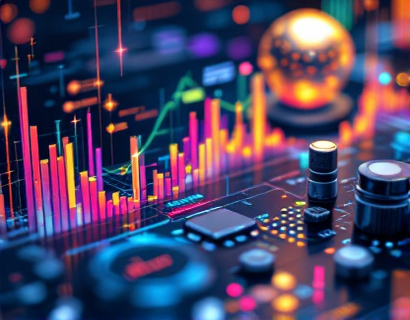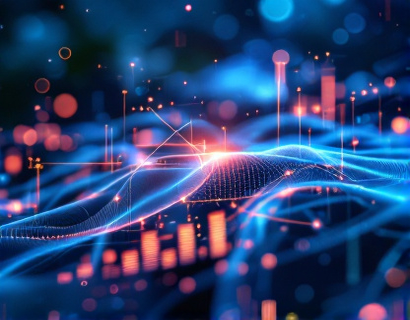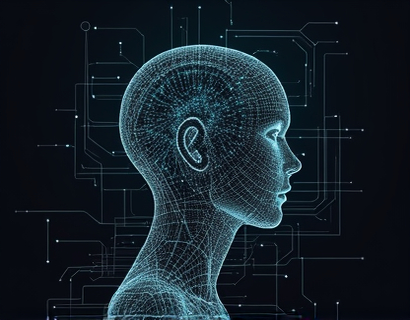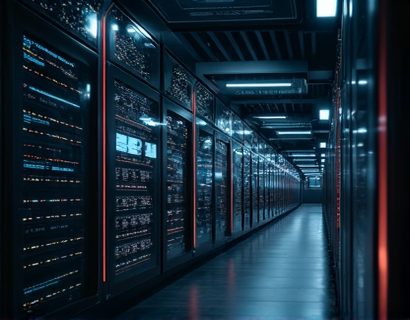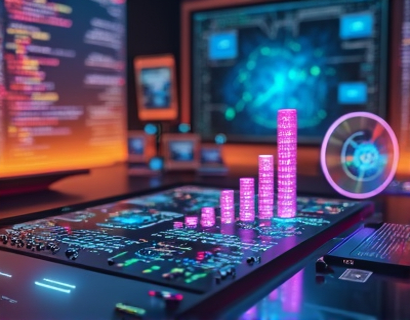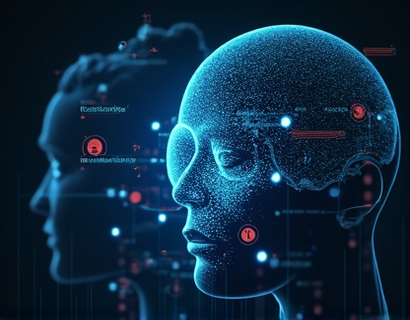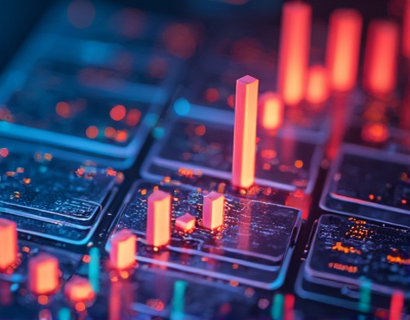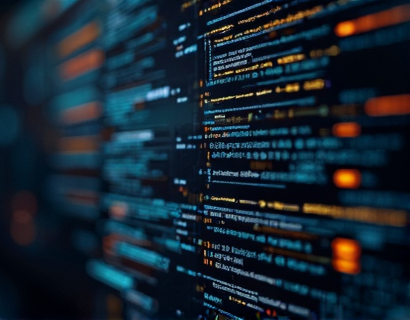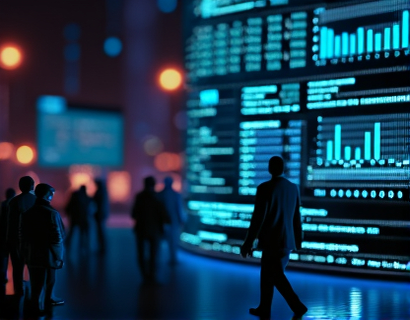AI and Crypto Convergence: Harnessing Intelligent Solutions for Next-Gen Blockchain Finance
The intersection of artificial intelligence (AI) and cryptocurrency is an exciting frontier that promises to revolutionize the finance industry. This convergence, often referred to as AI-driven blockchain finance, leverages the strengths of both technologies to create more efficient, secure, and innovative financial systems. As we delve into this topic, it's essential to understand the fundamental components of both AI and blockchain, and how their integration is reshaping the landscape of digital finance.
Understanding AI and Blockchain
Artificial intelligence, a branch of computer science, focuses on creating systems that can perform tasks requiring human intelligence, such as learning, reasoning, and problem-solving. AI technologies include machine learning, natural language processing, and computer vision, each contributing uniquely to the development of intelligent solutions.
Blockchain, on the other hand, is a decentralized digital ledger technology that records transactions across multiple computers in a way that ensures security, transparency, and immutability. The combination of these two technologies has the potential to address some of the most pressing challenges in finance, from fraud and inefficiency to regulatory compliance and user experience.
Enhancing Security with AI
One of the primary benefits of integrating AI into blockchain finance is the enhancement of security measures. Traditional blockchain systems rely on cryptographic algorithms to secure transactions, but they are not immune to sophisticated attacks. AI can significantly bolster these defenses by detecting and mitigating threats in real-time.
Machine learning algorithms can analyze vast amounts of data to identify patterns indicative of fraudulent activities. For instance, anomaly detection systems powered by AI can flag unusual transaction behaviors, such as unexpected large transfers or repeated failed login attempts, allowing for immediate intervention. This proactive approach to security not only protects users but also maintains the integrity of the blockchain network.
Moreover, AI can improve the security of smart contracts, which are self-executing contracts with the terms directly written into code. By analyzing the code for vulnerabilities and potential exploits, AI tools can help developers create more robust and secure smart contracts, reducing the risk of bugs and hacks.
Optimizing Transaction Processing
Blockchain networks, particularly those using proof-of-work (PoW) consensus mechanisms, often face scalability issues due to their energy-intensive nature and limited transaction throughput. AI can play a crucial role in optimizing transaction processing and enhancing the overall efficiency of blockchain systems.
One approach is the use of AI-driven consensus mechanisms that can dynamically adjust parameters based on network conditions. For example, AI can optimize the difficulty level of mining puzzles in PoW systems or manage the validation process in proof-of-stake (PoS) systems, ensuring faster and more efficient transaction confirmation.
Additionally, AI can facilitate the development of layer 2 solutions, such as state channels and sidechains, which offload transactions from the main blockchain, reducing congestion and lowering transaction fees. By analyzing transaction patterns and predicting network load, AI algorithms can dynamically route transactions to the most efficient pathways, enhancing the user experience and network performance.
Personalized Financial Services
The integration of AI and blockchain opens up new possibilities for personalized financial services. Traditional finance often struggles to provide tailored solutions due to the high costs and complexity of data analysis. AI, however, can process and analyze vast amounts of data to create highly customized financial products and services.
For instance, AI-powered robo-advisors can leverage blockchain to store and manage user data securely, providing personalized investment recommendations based on individual risk profiles and financial goals. These recommendations can be executed on the blockchain, ensuring transparency and immutability in the investment process.
Furthermore, AI can enhance credit scoring by analyzing alternative data sources, such as social media activity, transaction history, and online behavior. This broader data set can provide a more accurate picture of an individual's creditworthiness, making financial services more accessible to underserved populations.
Automated Trading and Arbitrage
AI-driven trading algorithms can significantly benefit from the transparency and real-time data availability provided by blockchain. These algorithms can analyze market data, identify trends, and execute trades automatically, often at speeds and scales unattainable by human traders.
Arbitrage opportunities, where the same asset is traded at different prices across multiple platforms, can be detected and exploited more efficiently with AI. By monitoring multiple blockchain networks and traditional exchanges in real-time, AI systems can identify discrepancies and execute trades to capitalize on these differences, generating profits and improving market efficiency.
Moreover, AI can help in risk management by continuously monitoring market conditions and adjusting trading strategies accordingly. This dynamic approach ensures that traders can adapt to changing market dynamics, minimizing losses and maximizing gains.
Regulatory Compliance and KYC Processes
One of the significant challenges in the crypto space is regulatory compliance and know-your-customer (KYC) processes. These requirements are essential for maintaining the integrity of financial systems but can be cumbersome and costly to implement. AI can streamline these processes by automating compliance checks and enhancing the accuracy of identity verification.
AI-powered systems can analyze large datasets to identify potential compliance risks and ensure that transactions adhere to regulatory standards. For KYC, AI can use advanced biometric analysis and machine learning to verify identities more accurately and efficiently, reducing the burden on users and financial institutions.
Blockchain's inherent transparency can be further enhanced by AI-driven compliance tools, creating a more trustworthy and regulated environment for crypto transactions. This synergy not only facilitates broader adoption but also builds confidence among users and regulators alike.
Challenges and Considerations
While the convergence of AI and blockchain offers numerous benefits, it also presents several challenges that need to be addressed. One of the primary concerns is the computational resources required for AI algorithms, especially those involving deep learning and complex models. Blockchain networks, particularly public ones, may struggle to support the high computational demands of AI, leading to scalability issues.
Another challenge is the need for standardization and interoperability. As the crypto and AI landscapes are rapidly evolving, ensuring that different systems and platforms can work together seamlessly is crucial. This requires collaborative efforts from developers, regulators, and industry stakeholders to establish common standards and protocols.
Privacy is also a significant concern. While AI can enhance security and compliance, it also raises questions about data privacy and the potential misuse of personal information. It's essential to develop AI solutions that prioritize user privacy and comply with data protection regulations, such as GDPR.
Future Outlook and Opportunities
The future of AI and blockchain convergence holds immense potential for innovation in the finance sector. As technology continues to advance, we can expect to see more sophisticated applications that further integrate these two fields.
One promising area is the development of decentralized AI models, where AI algorithms are trained and executed on a blockchain network. This approach can enhance the transparency and security of AI models, making them more trustworthy and accessible. Decentralized AI marketplaces could emerge, allowing developers to create, share, and monetize AI models in a secure and transparent manner.
Another exciting opportunity is the integration of AI with other emerging technologies, such as the Internet of Things (IoT) and 5G networks. This convergence can lead to the creation of smart financial ecosystems where devices and systems interact seamlessly, enabling real-time financial transactions and services.
In conclusion, the intersection of AI and blockchain is a dynamic and rapidly evolving field with the potential to transform the finance industry. By leveraging the strengths of both technologies, we can create more secure, efficient, and personalized financial systems. As tech enthusiasts and professionals, embracing this convergence and contributing to its development will be crucial in shaping the future of blockchain finance.



